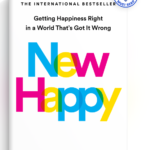How do you ask a question when you are in a business meeting or with family?
Listening to a recent podcast called Creative Confidence sponsored by Ideo, the design thinking folks, got me wondering about my approach. They interviewed a questionologist named Warren Berger, who makes a living writing book and teaching on this topic. His book, A More Beautiful Question, is on my reading list.
The quality, tone, and tenor of a question matters because it determines the path for learning, progress, and understanding.
If you want your coworkers or colleagues to be aligned and successful, how you ask a question can turn a meeting into a confrontation versus collaboration. If you’re going to deepen relationships with friends and family, great questions can power those conversations and be the catalyst needed for a fruitful engagement.
When our daughters were young, every dinner involved ‘The dinner question’. To this day, every meal is always served with a provocative question along with a side order of curiosity.
Two types of questions
There are the questions you ask yourself and the ones you ask others. I like to ask myself ‘what if’ or ‘how might I’ questions.
- What if I built a business based on an idea that inverts the way people look at a category?
- What if I do the exact opposite of what everyone else is doing so that I focus on a challenge others ignore?
- How might I create a non-profit to help others but package it in an unexpected way that delights and surprises donors?
Questions to myself are aspirational, imaginative and filled with wonder. I try to challenge myself in a constructive way to find alternatives and creative solutions.
Then there are the questions you ask others.
When I’m in meetings with clients or business partners, I like to lead with my curiosity. And, I want to provide some context to my question. So, I might structure a question as:
- I’m curious to explore how we might partner with an innovative company I met with yesterday. The reason I want to explore it is that they have an asset we don’t have, and we have one they want. How might we structure this type of arrangement with them?
- I observed an odd pattern in watching people buying wine at the store last week. I saw that the majority of the shoppers looked around for help, and in the absence of a knowledgeable person nearby, relied on the signs in the store. It reminded me how people look at the artwork in museums, first reading the placard, then looking at the painting. What do you think this might teach us about improving our in-store wine education? I’m asking because you often have a different way of seeing a challenge.
Soften the Inquiry
When asking questions of others, I tried to soften the inquiry, so it doesn’t feel like an FBI grilling. I decided to take a generous approach that isn’t challenging or threatening. Instead, I want the people I’m speaking with to feel comfortable sharing their views without feeling threatened.
Whether it is in a sales call or an exploring team discussion, great questions allow you to learn what others think, their perspective on a challenge and to get insights into how they see the problem.
Your thoughtful question will enable you to listen and to hear the other person. You may disagree with their worldview and opinion, but by starting with an understanding of what they believe and why, you are in a better position to craft more powerful solutions.
How do you ask questions?
What questions are on your mind? You can set up a time to chat with me about your marketing challenges using my calendar. Email me jeffslater@themarketingsage.com Call me. 919 720 0995. The conversation is free, and we can explore if working together makes sense. Try my new chat feature on my site if you have a quick question.
Photo by Evan Dennis on Unsplash




